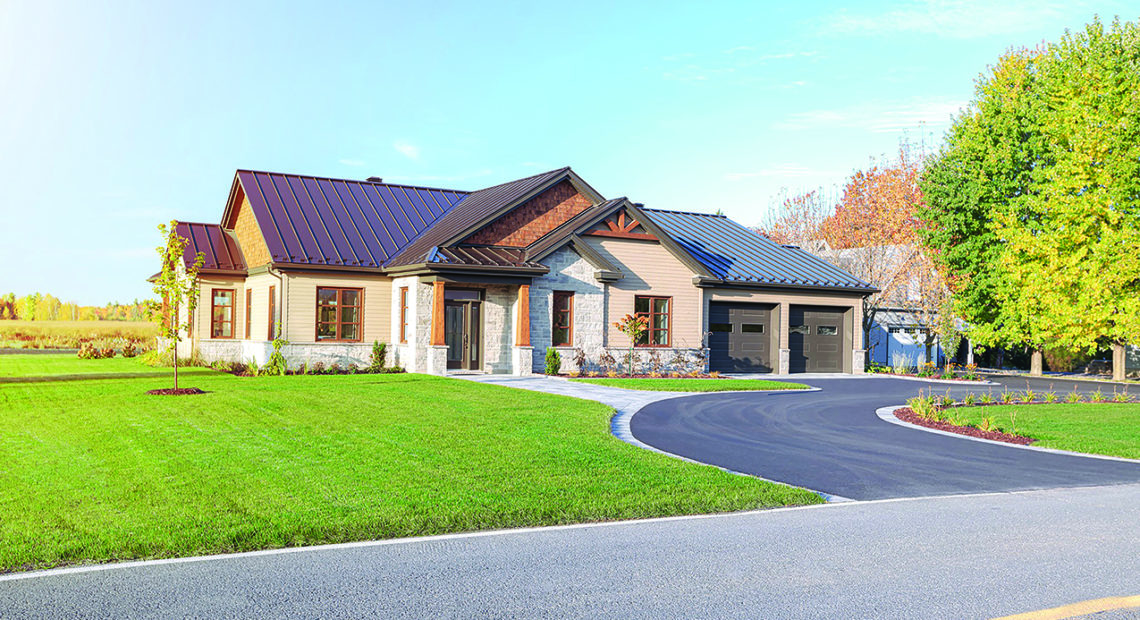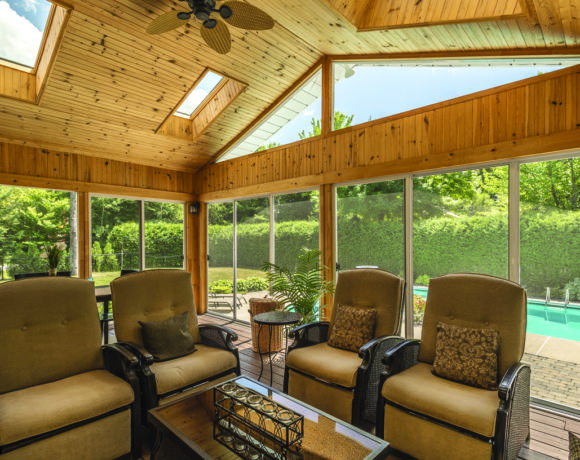With weather forecasts calling for a warmer than normal summer and social distancing encouraging us to spend more time at home, we could all benefit from boosting our home’s energy efficiency to save on energy bills. Here are some big and small changes that could help:
Start with a solid foundation. If you’re adding an extension to your home, a pool to your backyard or even planning a custom-built dream home, choose sustainable materials that promote energy conservation. Instead of traditional wood-framing, consider insulated concrete forms from Nudura. The eco-friendly alternative features thermal mass walls that can reduce heating and cooling costs by up to 60 percent a year.
Work on your windows. Did you know that about 15 to 20 percent of your home’s surface is windows? This means any issues with them can have a major impact on your energy consumption. Take time to caulk any gaps or air leaks, and consider upgrading to energy-efficient windows. Double-paned windows boost your insulation and help ensure your cooled, air conditioned air doesn’t escape.
Switch to outdoor energy sources. Take advantage of the gorgeous weather to spend more time outside. Instead of cooking meals in your energy-intensive oven that also heats up your home, break out the barbecue and enjoy dinner al fresco. You can also ease up on the clothes dryer by setting up a line and some pins in the backyard and use the wind and sun for drying power.
Install a smart weather station. Technology can help you make sure you’re consuming energy wisely. A smart thermostat is a great idea, but a smart weather station can work with it and other devices to go a step beyond, programming them around current and predicted weather patterns. For example, it can ensure your scheduled sprinkler won’t go off in the middle of a downpour.
Be mindful of your refrigerator. If you aren’t careful, a lot of energy can be used by your fridge. First, make sure the one in your kitchen (and basement) is a newer model, as older ones can cost hundreds more a year to power. Then, clear it out so the shelves and drawers aren’t overcrowded, which makes the fridge work harder to pump cool air throughout. Finally, if you let leftovers cool on the counter before putting them inside, your fridge will use less energy.
Find more information at nudura.com.








Recent Comments